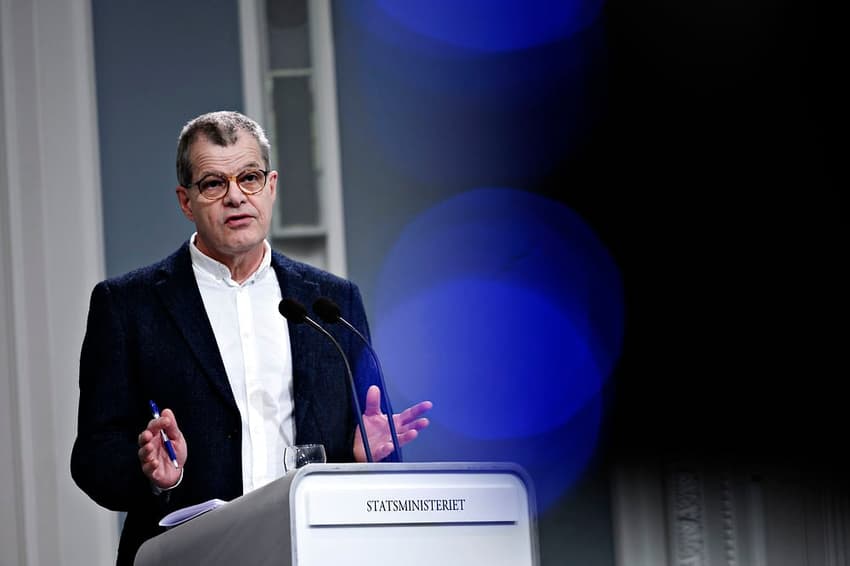Danish health expert does not recommend further reopening due to increase in Covid-19 cases

Epidemiologist Kåre Mølbak, the director of Danish infectious disease institute SSI, says he does not support reopening more of the country given currently coronavirus infection levels.
Increasing numbers of Covid-19 cases in recent weeks contraindicate a relaxation of current rules, the SSI director suggested in comments given to both Ingeniøren and DR.
“My professional assessment is that is very difficult to envisage health-based arguments in favour of a further opening when we can see that infections have increased in recent weeks,” he told DR.
SSI is the national agency for infectious disease research in Denmark and contributes health advice to the government's Covid-19 response.
“There is a big risk associated with [reopening], and whether that risk should be taken from a political point of view should be considered politically,” the director told Ingeniøren.
Next weekend will see limits on gathering increase from 100 to 200 people as part of phase three of Denmark’s planned reopening. Politicians are scheduled to meet on August 12th to set out the terms of phase 4 – the final phase of the planned reopening.
Mølbak did not say whether or not he agreed with going through with the increase to 200 people for gatherings.
“It is necessary to also make political considerations in that regard. It depends how much you raise (the limit) and on the type of gatherings. But my assessment is that it is not the natural choice to go through with it,” he said.
Phase includes provisions for nightlife establishments to reopen. This aspect was cited by Mølbak as potentially problematic.
“It is in exactly these situations that we have experienced infections occur, because people are typically with others whom they do not know,” he said.
“That means people they have not previously had contact with. Furthermore, there’s a certain loss of control when people drink and go out at night,” he added.
Recent increasing numbers of new infections form the background for the comments given by Mølbak.
“It is actually throughout July that we have seen increasing incidence of Covid-19,” he said.
READ ALSO: Weekend figures show rise in Danish coronavirus cases
Comments
See Also
Increasing numbers of Covid-19 cases in recent weeks contraindicate a relaxation of current rules, the SSI director suggested in comments given to both Ingeniøren and DR.
“My professional assessment is that is very difficult to envisage health-based arguments in favour of a further opening when we can see that infections have increased in recent weeks,” he told DR.
SSI is the national agency for infectious disease research in Denmark and contributes health advice to the government's Covid-19 response.
“There is a big risk associated with [reopening], and whether that risk should be taken from a political point of view should be considered politically,” the director told Ingeniøren.
Next weekend will see limits on gathering increase from 100 to 200 people as part of phase three of Denmark’s planned reopening. Politicians are scheduled to meet on August 12th to set out the terms of phase 4 – the final phase of the planned reopening.
Mølbak did not say whether or not he agreed with going through with the increase to 200 people for gatherings.
“It is necessary to also make political considerations in that regard. It depends how much you raise (the limit) and on the type of gatherings. But my assessment is that it is not the natural choice to go through with it,” he said.
Phase includes provisions for nightlife establishments to reopen. This aspect was cited by Mølbak as potentially problematic.
“It is in exactly these situations that we have experienced infections occur, because people are typically with others whom they do not know,” he said.
“That means people they have not previously had contact with. Furthermore, there’s a certain loss of control when people drink and go out at night,” he added.
Recent increasing numbers of new infections form the background for the comments given by Mølbak.
“It is actually throughout July that we have seen increasing incidence of Covid-19,” he said.
READ ALSO: Weekend figures show rise in Danish coronavirus cases
Join the conversation in our comments section below. Share your own views and experience and if you have a question or suggestion for our journalists then email us at [email protected].
Please keep comments civil, constructive and on topic – and make sure to read our terms of use before getting involved.
Please log in here to leave a comment.